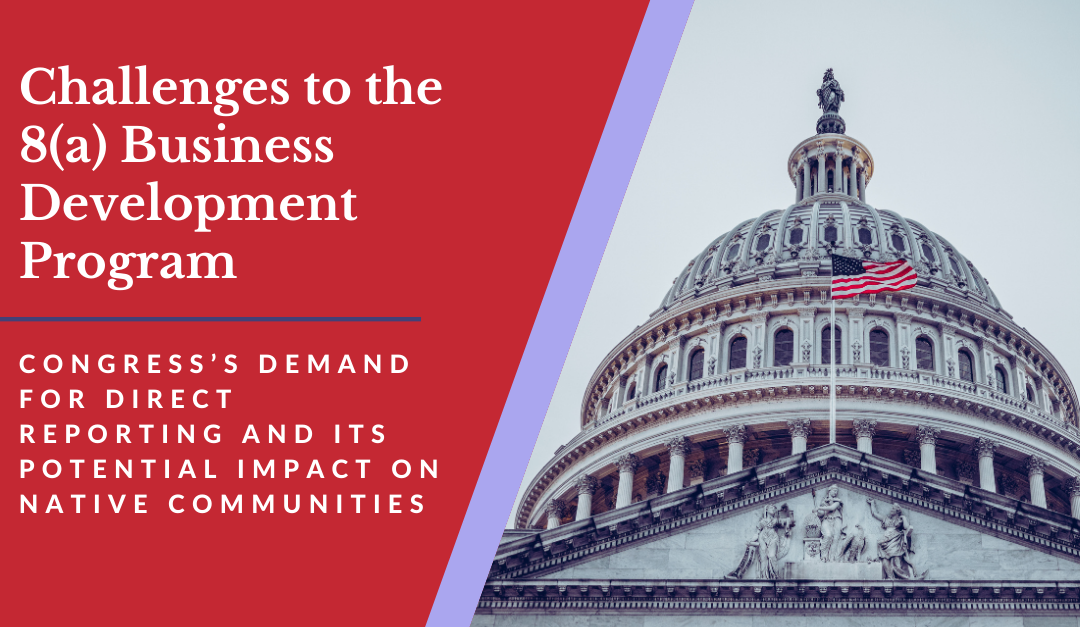As reported previously in the wake of the Ultima decision, GovContractPros, LLC (GCP) expected additional legal attacks on the 8(a) Business Development Program that has benefited countless socially and economically disadvantaged individuals, including members of Native American Tribes, Alaska Native Tribes and Corporations, and Native Hawaiian Organizations. GCP has learned that the latest challenges to the Program are being made by individual representatives in Congress. Under the pretense of oversight, several congressional offices have demanded that the SBA not only collect and monitor entity-owned financial statements and benefits reports as intended, but also report this information directly to elected congressmen and women.
SBA regulations require that entity-owned 8(a) firms submit these financial statements and reports to the Agency as part of the application process, and on an annual basis for ongoing eligibility. The benefit reports are used to demonstrate the benefits provided to the underlying disadvantaged communities (i.e. the Tribes, the Alaskan Native Communities or the Native Hawaiian Organizations). Because of the diverse community needs, this data may include, funding of cultural programs, employment assistance, job creation, scholarships, internships, subsistence activities, and other services provided by the Tribe, ANC, or NHO to the affected communities.
Despite appropriate questions regarding the impact to Tribal sovereignty that these reports implicate as well as the confidential commercial information status of these reports, Tribes, NHOs, and ANCs annually report these benefits to SBA in good faith owing to their participation in the 8(a) Program.
While oversight of executive agencies is squarely within the constitutional duties of the legislative branch, Congress should have simply required SBA to report receipt of these tribal benefit reports. By demanding direct production of each organization’s benefits report, Congress is not attempting to oversee the agency, and this request may have the unintended consequence of adversely impacting socially and economically disadvantaged Native Communities the Program was intended to support. This expanded reporting requirement threatens participation in the Program and reignites the historical governmental distrust felt by members of the Native Communities.
GCP is deeply troubled by both the motives and impacts of this move. We fear Congress’ action will have a chilling effect on the native communities’ participation in federal small business programs, and further erode the already strained relationship between Native Communities and the U.S. Government. In response to these actions, congressional outreach is necessary.


Recent Comments